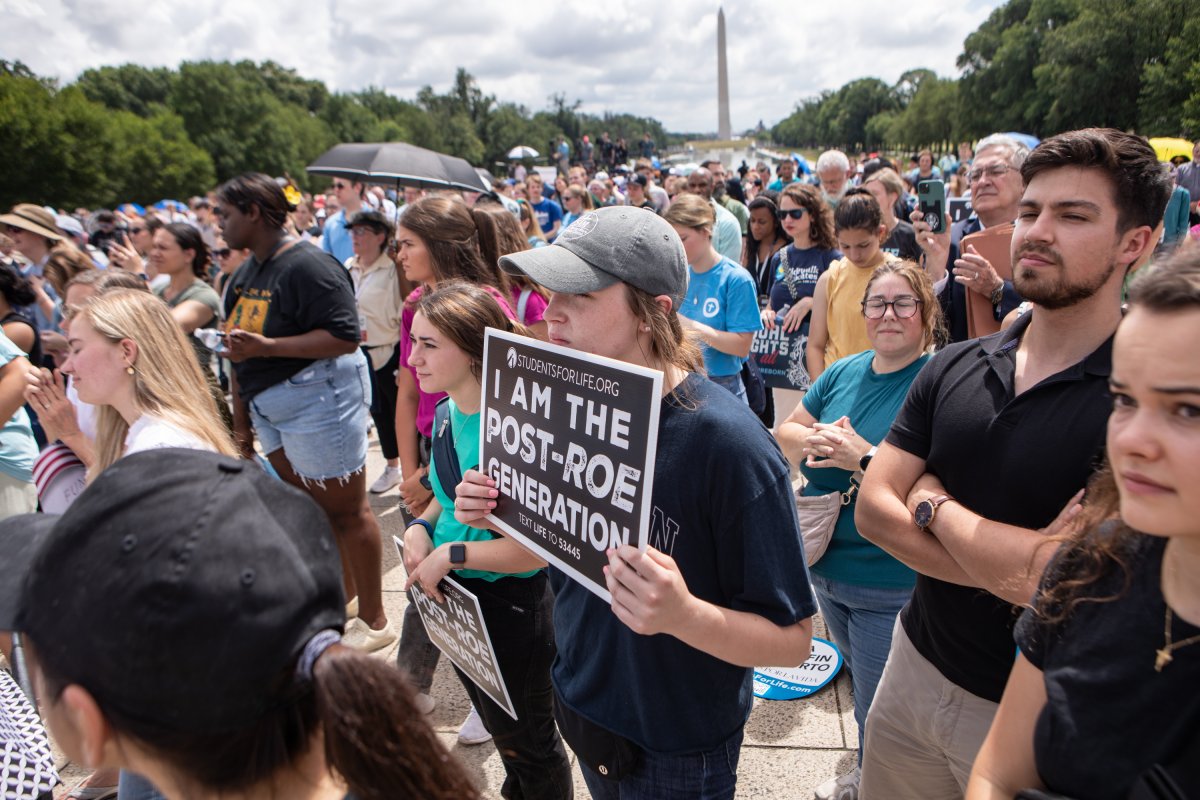The implications for children in the foster care system are dire, and a new study from JAMA Pediatrics revealed that restrictive abortion laws have led to higher numbers of children in foster care.
As a foster parent to more than 60 children, John DeGarmo, the founder and director of The Foster Care Institute, has seen how many children face trust and attachment issues. They also run a higher risk of running away and are more vulnerable to human trafficking, behavioral issues, trauma and anxiety, and academic struggles, including dropping out, he said.
"Foster care is in crisis in our nation, as more children continue to flood into the system, and not enough foster parents," DeGarmo told Newsweek.
This crisis is underscored by the JAMA study, which showed an 11 percent increase in the number of children in foster care after restrictive abortion laws were enacted in several states.

Since the 2022 U.S. Supreme Court ruling in Dobbs v. Jackson Women's Health Organization that abortion would no longer be federally protected, 26 states have added laws to ban or restrict abortion, while 14 have completely banned the procedure.
In 2021, more than 400,000 children were in foster care nationally, but the number could likely grow as more women are unable to have abortions.
"With restrictive abortion laws in place, this may result in even more children being placed into foster care, despite the lack of foster homes at this time," DeGarmo said.
The JAMA Pediatrics study looked at the number of children placed in foster care between 2000 and 2020 compared to when restrictive abortion laws were passed to see what connections could be drawn.
Women seeking abortion are typically already more disadvantaged than the larger population. About half have never been married, are racial minorities and live below the federal poverty level, meaning they are more likely to have their children put in foster care, the study said.
"It seems that lack of access to legal abortion may place a financial hardship on people who fall pregnant, but who may have otherwise chosen to terminate their pregnancy," Savannah Adkins, an economics professor at Bentley University and lead author of the study, told Newsweek.
When abortion is no longer a feasible option, with the only legal providers hours of travel away, many women end up having children they didn't plan on, and many of the kids end up in foster care without their parents being able to adequately care for them.
"The overturning of Roe v. Wade has eliminated access to both safe and legal abortions," Hallie Kritsas, a mental health counselor at Thriveworks who spent nine years in the non-profit and dependency system, told Newsweek. "Families who do not feel equipped to keep their child will potentially have to turn to placing their children up for adoption."
While the link between poverty, abortion laws and foster care are intertwined, the study found that insufficient housing was a major factor that drove the kids into foster care, reflecting a particular strain of anti-abortion laws on impoverished communities.
The ramifications were more severe for Black children, who comprise 22 percent of foster care children despite being about 13 percent of the entire population.
"Restrictive abortion policies may perpetuate existing inequalities and further strain vulnerable populations," Adkins said.
Foster care placement has been linked with a wide range of future issues for children, including mental health challenges, low education attainment and poverty. Adkins said many of the problems could worsen for the children in foster care as the system takes in even more kids without the resources to find them solid homes.
Once inside the foster care system, many children wait years to be adopted. For some, a new family never arrives at all.
That's the case for about 20,000 children who phase out of the program each year, according to the Children's Bureau Express. And these children often don't go on to graduate from college or achieve financial success.
Uncommon Knowledge
Newsweek is committed to challenging conventional wisdom and finding connections in the search for common ground.
Newsweek is committed to challenging conventional wisdom and finding connections in the search for common ground.
About the writer
Suzanne Blake is a Newsweek reporter based in New York. Her focus is reporting on consumer and social trends, spanning ... Read more





